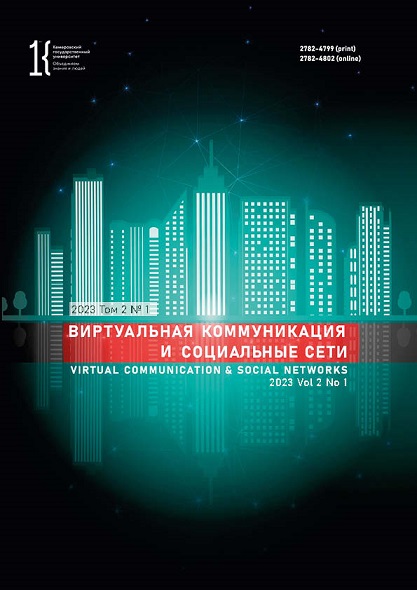Kemerovo, Russian Federation
The Internet is a source of quantitative information for quantitative morphological research. This article introduces the possibilities for using the National Corpus of the Russian Language to define the quantitative indicators of Russian participles. This approach made it possible to correlate the frequency and patterns of participles based on the search options provided by the Corpus. The research featured participial contexts extracted by continuous sampling from Russian fiction. The methodology included the quantitative-morphological analysis, comparative-comparative method, and descriptive-analytical method. Internet search proved to be a reliable source of linguistic material suitable for identifying the usage frequency of a certain participial form and its speech patterns. The method may be used to profile participial patterns in fiction texts.
quantitative morphology, quantitative methods, National Corpus of the Russian language, participle, artistic style, frequency
1. Bulgakova E. V., Sholokhov A. V., Tomashenko N. A. Speakers' identification method based on comparison of phoneme lengths statistics. Scientific and Technical Journal of Information Technologies, Mechanics and Optics, 2015, 15(1): 70-77. (In Russ.) https://elibrary.ru/tjyjxz
2. Gerd A. S., Kaporulina L. V., Kolesov V. V., Ruskova M. P., Cherepanova O. A. Nominal declension in Slavic languages of the XI-XIV centuries. Leningrad: LSU, 1974, 236. (In Russ.)
3. Golev N. D. Lexical realization as a functional characteristic of the word-formation system of the Russian language and quantitative parameters of its description. Osm’ desyat’: collection of scientific articles for the 80th anniversary of I. S. Ulukhanov, ed. Malygina M. A. Moscow: Azbukovnik, 2015, 183-193. (In Russ.) https://elibrary.ru/vnnufr
4. Golev N. D. Lexical functioning of word-building and the lexical-word-building system of the Russian language in the light of Internet statistics. Vestnik Tomskogo Gosudarstvennogo Universiteta. Filologiya, 2011, (1): 22-31. (In Russ.) https://elibrary.ru/negsif
5. Golev N. D. Internet search engines as a linguistic source in solving some theoretical and applied issues of Russian word formation. New phenomena in Slavic word formation: system and functioning: XI Intern. Sci. Conf., Moscow, 24-26 Mar 2009. Moscow: MAKS Press, 2010, 197-212. (In Russ.) https://elibrary.ru/seaaql
6. Lyashevskaya O. N., Sharov S. A. Frequency dictionary of the modern Russian language based on the materials of the National Corpus of the Russian language. Moscow: Azbukovnik, 2009, 1087. (In Russ.) https://elibrary.ru/rtaoxb
7. Melnik V. I. The last novels by I. A. Goncharov: religious meaning. I. A. Goncharov: Proc. IV Intern. Sci. Conf. dedicated to the 195th anniversary of I. A. Goncharov, Ulyanovsk, 13-17 Jun 2007. Ulyanovsk: Nika-desain, 2008, 236-246. (In Russ.)
8. Petrova A. L., Solovieva A. A. Analysis of vowel letter distribution in musical lyrics via use of mathematical statistics methods (a case study of Italian, Russian, French and German songs). Mathematics and Interdisciplinary Research - 2016: Proc. All-Russian Sci.-Prac. Conf. of young scientists with Intern. participation, Perm, 16-19 May 2016. Perm: PSU, 2016, 261-265. (In Russ.) https://elibrary.ru/wxuodr
9. Radchenko A. I. Participles as functional speech units (based on the material of works of Russian prose). Kultura i tekst, 2022, (3): 167-177. (In Russ.) https://doi.org/10.37386/2305-4077-2022-3-167-177















